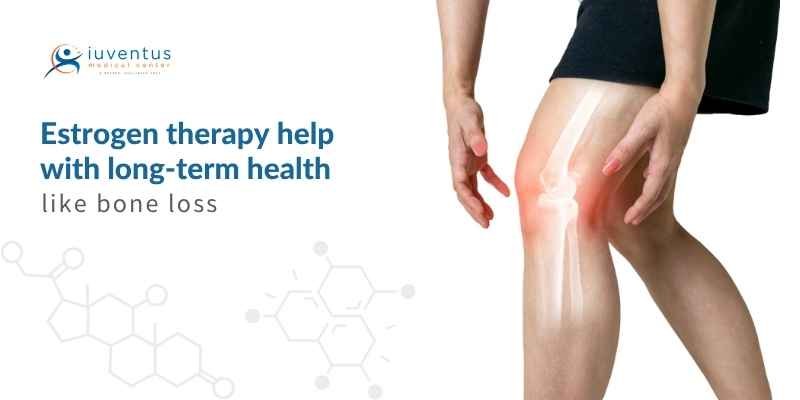Common Questions About Estrogen Therapy Answered

When I talk with women about menopause, one of the most common things I hear is, “I just don’t feel like myself anymore.” Some describe tossing and turning at night, others talk about sudden mood swings that seem to come out of nowhere, and many quietly admit how uncomfortable intimacy has become. These experiences aren’t just “in your head”—they’re often linked to changes in estrogen, one of the body’s most important hormones.
Estrogen therapy can be a powerful way to help women feel balanced again, but it’s also a topic full of questions and, sometimes, confusion. Let’s go through some of the most common questions women ask about estrogen therapy in plain, straightforward language—just like a friend explaining things over coffee.
1. What exactly is estrogen therapy?
Think of estrogen therapy as giving your body back a hormone it’s producing less of. As women enter perimenopause and menopause, estrogen levels naturally decline. This is what leads to hot flashes, vaginal dryness, mood swings, and sleep struggles.
Estrogen therapy means replacing some of that lost estrogen, usually through pills, patches, creams, or even tiny rings placed inside the vagina. The goal isn’t to turn back the clock but to help your body maintain balance so you can feel more comfortable day to day.
I once spoke with a woman in her late 40s who had been waking up drenched in sweat every night. She said, “I thought I’d just have to suffer through it.” Once her doctor prescribed a low-dose estrogen patch, her nights turned quiet again—and she could finally rest.
2. What symptoms does estrogen therapy actually help?
The “big three” that usually bring women to their doctor are:
-
Hot flashes and night sweats—those sudden waves of heat that make you want to rip your sweater off in the middle of a meeting.
-
Vaginal dryness and discomfort—often making intimacy painful or leading to frequent urinary tract infections.
-
Sleep problems—when night sweats wake you up, or hormonal shifts keep your mind restless.
But estrogen therapy doesn’t stop there. Some women also notice:
-
Better mood stability (less irritability, fewer unexpected tears).
-
Improved skin elasticity and hair health.
-
Sharper memory and focus.
It’s not about becoming “superwoman”—it’s about regaining a sense of normalcy.
3. Is estrogen therapy safe?

This is the million-dollar question. The short answer: for many women, yes, it can be safe and effective—if it’s used the right way.
There was a time when hormone therapy got a bad reputation because of an extensive study published in the early 2000s. The results suggested it increased the risks for breast cancer and heart disease. But later, researchers realized those findings weren’t the whole story. For younger women (usually under age 60, or within 10 years of menopause), estrogen therapy can actually be quite safe, mainly if prescribed in the lowest effective dose.
Of course, every woman’s health history is different. Someone with a strong family history of breast cancer or blood clots, for instance, might need to avoid it or consider non-hormonal options. That is why it is essential to be open and transparent with a healthcare professional.
4. Do I have to take estrogen forever?
Not at all. Some women use estrogen therapy just long enough to get through the worst of their symptoms. Others stay on it longer, especially if it’s helping protect bone health or improve overall quality of life.
One woman I met said she used estrogen cream for just two years, until her vaginal discomfort eased and intimacy felt comfortable again. Another shared that she’s been using an estrogen patch for nearly a decade because it helps her sleep and keeps her energy up, and her doctor feels it’s still safe for her.
It’s really about what works best for you, with regular check-ins to reassess.
5. Can estrogen therapy help with long-term health, like bone loss?

Yes, estrogen therapy can help with long-term health. Sadly, this benefit is not getting the recognition it deserves. There are no strong, healthy bones without estrogen.
Menopause reduces estrogen levels in a woman’s body, which can speed up bone loss. Thankfully, estrogen therapy slows down that process. It reduces the chances of osteoporosis and fractures.
6. What are the options for taking estrogen?
Thankfully, there are many options available for you when it comes to estrogen. You are not forced to stick to a particular one. You can take pills, patches, creams, rings, tablets, gels, or sprays, depending on your unique needs and preferences.
7. Will estrogen therapy make me gain weight??
This is a common fear, and here’s the truth: estrogen itself does not directly cause weight gain. What many women notice is that menopause brings changes in metabolism and body composition—more fat around the belly, less lean muscle—even without therapy.
Some women actually find that once estrogen therapy helps them sleep better and feel more energetic, they can exercise more and maintain their weight more easily. So, instead of adding pounds, it may help you manage them more effectively.
8. How do I know if estrogen therapy is right for me?
I highly recommend estrogen therapy for women experiencing menopause symptoms in their daily lives, such as painful intimacy, sleepless nights, constant mood swings, and more. You should explore this therapy if you’re in that category. However, the best and surest way to know is by talking with your doctor.
Bring a list of your symptoms, your family health history, and your personal concerns. Sometimes women feel nervous asking, but doctors are used to these conversations. And remember—you don’t have to “just live with it.” Relief is possible.
Final Thoughts
Estrogen therapy isn’t about chasing youth. It’s about supporting women through a natural transition in life with compassion, knowledge, and personalized care.
I’ve heard so many women say, “I thought this was just part of getting older, but I didn’t realize I had options.” Estrogen therapy can give women back their sleep, their confidence, and their ability to enjoy everyday life again.
